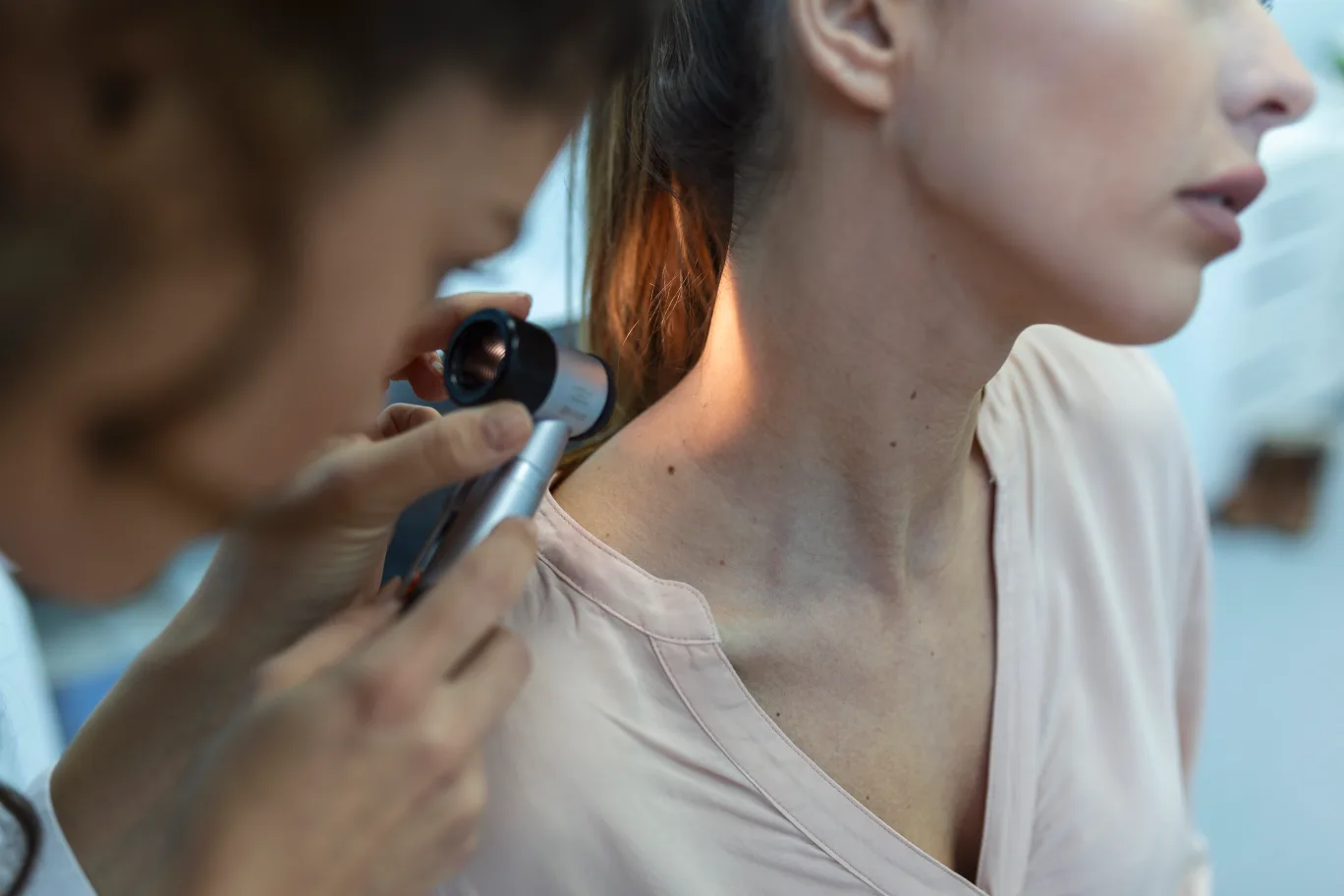
Medical Weight Loss Explained
A lot is said about medical weight loss but we are here to debunk the myths for you.

Find Out More


Skin cancer is one of the most common types of cancer, but with early detection and proper care, it is also one of the most treatable.
Our expert team is here to guide you through understanding skin cancer, its prevention, and effective treatment options.

Skin cancer is primarily caused by overexposure to ultraviolet light, whether from the sun, tanning beds, or sunlamps. Melanoma, a type of skin cancer, originates from melanocytes, the pigment-producing cells in the skin. Although less common than non-melanoma skin cancers, melanoma is more dangerous and requires prompt attention.
Non-melanoma skin cancers include basal cell carcinoma (BCC) and squamous cell carcinoma (SCC), which arise from different types of skin cells. These cancers are more common than melanoma but are generally less aggressive.
Basal cell carcinoma (BCC) originates from basal cells in the epidermis, while squamous cell carcinoma (SCC) arises from squamous cells in the epidermis.
Non-melanoma skin cancers present with distinct symptoms. BCC often appears as a new growth or sore that doesn’t heal, typically manifesting as shiny, pearly nodules or bumps. Alternatively, it may present as flat, scaly patches that are red or irritated and sometimes bleed or ooze. SCC, on the other hand, may be characterised by red, scaly patches or growths that can bleed and are often crusty. It might also appear as warts or nodules that do not heal.
Melanoma, a more aggressive form of skin cancer, is typically identified by a new or changing mole or spot on the skin. Key warning signs include asymmetry, where one half of the mole doesn’t match the other; irregular borders with uneven or scalloped edges; and multiple colours, including varying shades of black, brown, red, or white. Melanomas are often larger than 6mm in diameter (about the size of a pencil eraser) and may be itchy, painful, or bleed and ooze.


Treatment for non-melanoma skin cancer typically involves surgery to remove the tumour along with surrounding cells. In addition to surgery, other treatment options include cryotherapy, which involves freezing the cancer, chemotherapy creams, radiotherapy, and photodynamic therapy.
The most appropriate treatment method depends on factors such as the size, location, and type of non-melanoma skin cancer. There are four primary types of non-melanoma skin cancer: basal cell carcinoma, squamous cell carcinoma, Bowen’s disease, and actinic keratoses. Among these, basal cell carcinoma and squamous cell carcinoma are the most common.
Preventing skin cancer is possible with a few proactive steps:
Use our online booking engine or book your test by giving us a call.
On the online booking engine select the “appointment type” you need.
You will be seen by one of our friendly doctors or trained clinicians.

Gather information about your family history of skin cancer, any past skin issues, and any previous treatments. Note any changes in your skin, such as new moles, changes in existing moles, or any unusual growths. Document their size, shape, colour, and any associated symptoms like itching or bleeding.

The healthcare provider will perform a thorough skin examination, checking for any signs of skin cancer. They may use a dermatoscope to get a closer look at suspicious areas. If a suspicious area is found, the healthcare provider may perform a biopsy, which involves removing a small sample of skin for laboratory analysis. The procedure is typically quick and is done with local anaesthesia.

The healthcare professional will discuss their findings and the next steps with you. If a biopsy was performed, they will explain when and how you will receive the results. Once the biopsy results are available, your healthcare provider will discuss them with you. If skin cancer is diagnosed, they will explain the type, stage, and recommended treatment options. Follow the treatment plan as prescribed, which may include surgery, topical treatments, radiation therapy, or other options depending on the type and stage of skin cancer.
Incorporated
in 1998
Experienced doctors & a professional team
Registration
not needed
Up-to-date with the latest treatments & testing
Strictly
confidential
Experienced doctors & a professional team
Affordable private
health care
Transparent fee structure with no hidden charges
We work with experienced consultants & healthcare professionals who have received positive feedback from our patients, and with whom we have established long-term relationships.
Latest Episode
Tune in to our podcast to explore the world of healthcare and learn from distinguished special guests. We cover everything from preventative measures to cutting-edge treatments so that you can stay informed and up-to-date on health-related things.

A lot is said about medical weight loss but we are here to debunk the myths for you.

Tourist in London and need a GP? Get fast, private care for illnesses, injuries, or lost medication. No registration needed.

With NHS appointments harder to access, many people are turning to private GPs for faster, more convenient care.
Subscribe for latest updates & news


From same-day private GP and blood test appointments to visa medicals, a sexual and reproductive health clinic, and preventative health screenings, we are here to help.
Contact Us
Accepted Insurance Companies






Please note that Walk-in Clinic is a private medical centre & not an NHS service. Harley Walk-in Clinic Ltd company registration no. 07472804